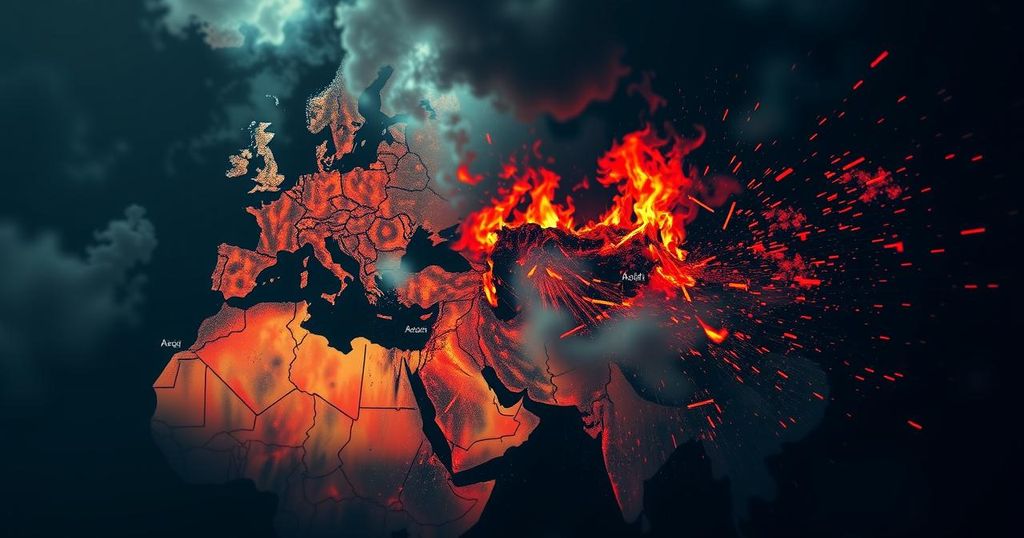The Middle East conflict is escalating, with Israel at a high level of readiness for potential Iranian retaliation following recent strikes. U.S. officials are visiting the region to deter further aggression and push for ceasefires, although optimism for immediate resolution remains muted. Airstrikes in Gaza and Lebanese retaliation underscore the violence, while humanitarian conditions worsen as Israel enforces significant restrictions on UN operations in the region.
The ongoing conflict in the Middle East continues to escalate, with Israel reportedly maintaining a heightened state of alert as tensions rise over potential responses from Iran. An Israeli military source stated Israel’s readiness for retaliation after recent strikes against Iranian positions, which may prompt Iran to respond before the upcoming U.S. presidential election. Diplomatic efforts by U.S. officials focus on preventing further Iranian retaliation and seeking resolutions in Lebanon and Gaza; however, optimism for a ceasefire prior to the election remains low, given the complexity of the ongoing violence. In Lebanon, the Israeli military conducted airstrikes in Beirut’s southern suburbs, marking the first such actions in nearly a week, as Hezbollah launched an extensive rocket barrage that resulted in civilian casualties in Israel. In Gaza, at least thirteen individuals were killed in an Israeli airstrike, with reports indicating extensive destruction of UN medical supplies following a bombing at a hospital. Amid these developments, the United Nations condemned Israel’s recent ban on the UN agency for Palestinian refugees, urging acknowledgment of the dire humanitarian circumstances in Gaza. Additionally, both sides appear to assess military efficacy in the region, as Israeli military leaders suggest they may have achieved maximum impact in their campaigns and signal a greater willingness for discussions about ceasefires and diplomacy. Notably, the changing political landscape in the U.S. adds an element of uncertainty regarding future actions in the region as Israeli Prime Minister Netanyahu appears to be strategically waiting for the election outcomes. U.S. diplomatic initiatives are fueled by hopes of achieving a ceasefire in Lebanon, with the Lebanese Prime Minister expressing optimism about resolving conflict with Hezbollah. Nevertheless, uncertainties linger amidst the increasingly complex dynamics of the Israeli-Iranian confrontation, which heightens the potential for broader regional conflict.
The conflict in the Middle East, primarily involving Israel, Iran, and Hezbollah, has recently intensified, marked by reciprocal strikes and rising civilian casualties. Israel has engaged in military operations against Iranian sites amid fears of retaliation, while the humanitarian situation in Gaza continues to deteriorate, drawing international concern. The geopolitical implications of the upcoming U.S. presidential election further complicate the landscape, as current Israeli leadership navigates its strategies in light of potential U.S. foreign policy shifts. This volatile environment necessitates nuanced diplomatic efforts to de-escalate tensions and address the humanitarian crises resulting from ongoing hostilities.
In summary, the situation in the Middle East remains precarious, characterized by heightened military readiness in Israel in anticipation of Iranian responses and ongoing violence in Lebanon and Gaza. U.S. diplomatic efforts seek to mitigate escalation and foster ceasefires, particularly in Lebanon, yet significant challenges endure, underscored by the urgent humanitarian needs in Gaza and the complex political implications surrounding the U.S. election.
Original Source: www.cnn.com






